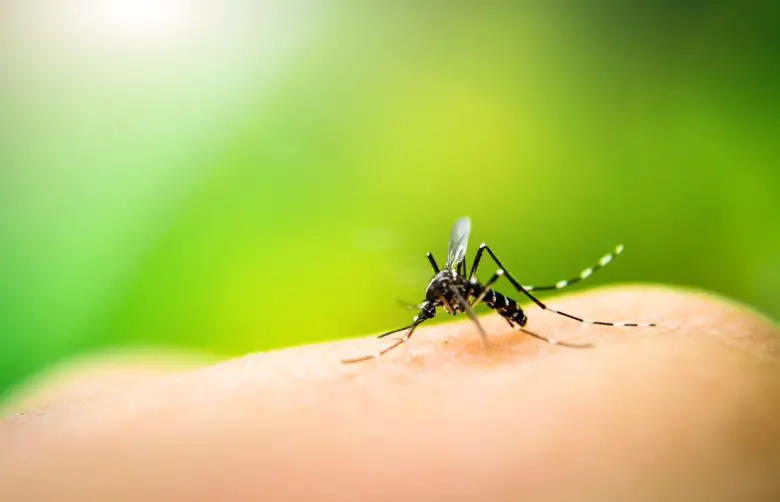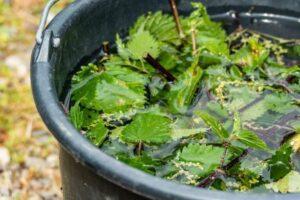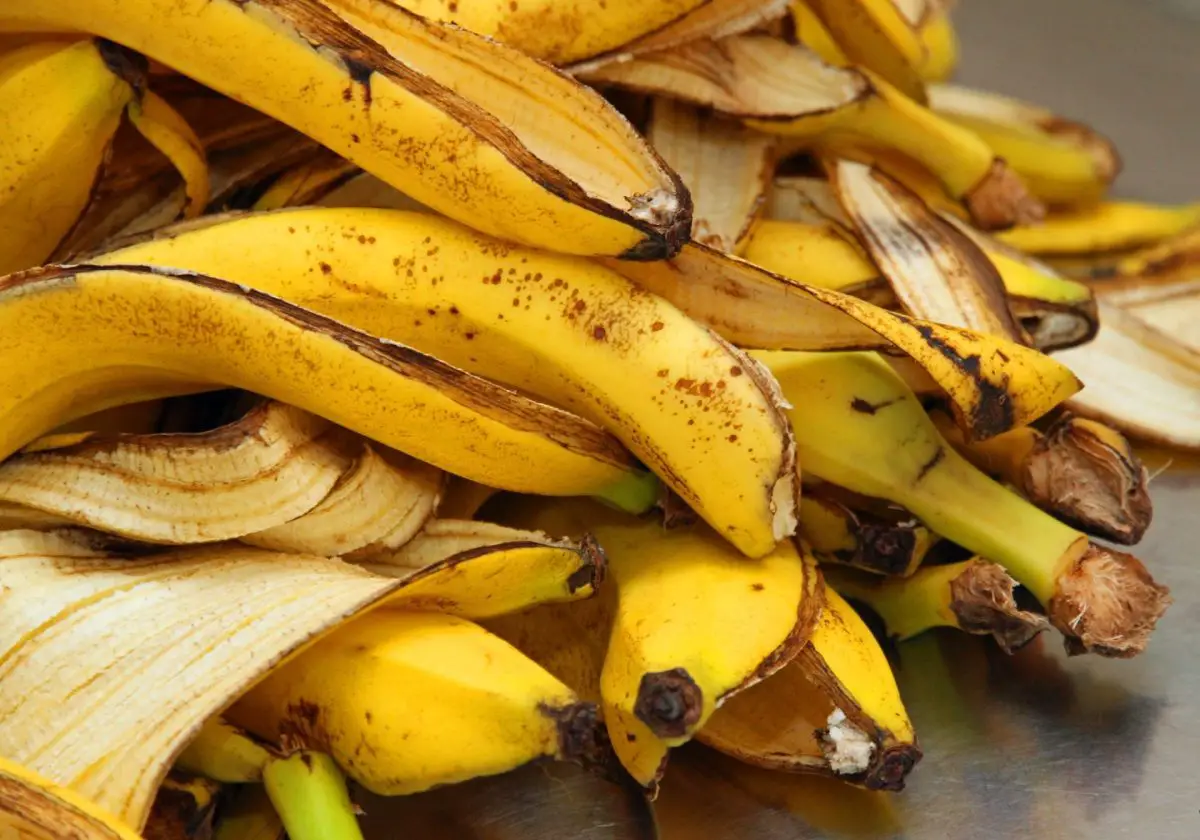With the arrival of summer, mosquitoes become an inevitable nuisance. To cope with it, many gardening enthusiasts are experimenting with a natural and effective solution: the mosquito repellent plants. These plants, thanks to their repellent properties, can help keep mosquitoes away, creating a more pleasant and safe environment in the garden. But which are the most effective mosquito repellent plants to grow? In this article, we will discover together a selection of these plants which, in addition to performing a decorative function, offer a sustainable way to fight against mosquito infestation.
Get ready to immerse yourself in a world of scents and colors that will keep annoying mosquitoes away, offering an oasis of tranquility in your garden.
What are the best mosquito repellent plants?

Fortunately, there are numerous mosquito repellent plants in nature, some are much more common than one might think.
Let’s see them divided by type and with the related insights on organic cultivation techniques.
Aromatic and medicinal plants
- basil (Ocimum basilicum)
- Peppermint (Mentha x piperita)
- rosemary (Rosmarinus officinalis)
- thyme (Thymus spp.)
- wild fennel (Foeniculum vulgare)
- sage (Salvia spp.)
- monarda (Monarda didyma)
- garlic (Allium spp.)
- catnip (Nepeta cataria)
- Luigia herb or lemon verbena (Aloysia citriodora)
- lavender (Lavandula spp.)
- frankincense plant (Plectranthus coleoides)
- lemon balm or lemon balm (Melissa officinalis)
- calendula (Calendula officinalis)
- chamomile (Matricaria chamomilla)
- verbena (Verbena officinalis)
Ornamental plants
- geranium (Pelargonium spp.)
- lemongrass (Cymbopogon spp.)
- eucalyptus (Eucalyptus spp.)
- catalpa and its hybrid catambra (Catalpa bignonioides)
- ageratum (Ageratum spp.)
- honeysuckle (Lonicera caprifolium)
These plants are known for their mosquito repellent properties and can be grown in the ground, but many can also be grown in pots.
What is the anti-mosquito efficacy of these plants due to?
The mosquito repellent efficacy of these plants is mainly due to the natural chemicals they produce, such as essential oils, volatile compounds and other aromatic compounds. These substances have an intense odor that can be annoying for mosquitoes and repel them. Mosquito repellent plants emit these compounds into the surrounding air when touched or when the leaves are rubbed. The odor released masks the chemical cues that mosquitoes use to locate their prey, confusing them and reducing their attraction to their surroundings.
Furthermore, some of these plants may also contain substances that have antiparasitic, fungicidal or antibacterial properties. These properties can help keep the surrounding area healthier by reducing the presence of insects and other unwanted organisms.
However, it is important to underline that the effectiveness of plants in repelling mosquitoes can vary according to the environmental conditions and the concentration of the repellent substances. Furthermore, plants that counteract mosquitoes do not eliminate them completely, but they can help reduce their presence and offer a natural and sustainable alternative to traditional chemical repellents.
Where in the garden should mosquito repellent plants be grown to maximize repelling effectiveness?
To maximize the repellent effectiveness of mosquito repellent plants, it is advisable to grow them in strategic areas of the garden. Place them near the area where you usually sit outdoors, such as a patio, deck, or porch. This way, the smell of the plants will be more concentrated around you, creating a repellent barrier.
Grow mosquito repellent plants near the entrance to your garden or outdoor area, so that you repel mosquitoes right from the start and prevent them from entering. Place them near windows, especially if you have curtains or screens open. This can help prevent mosquitoes from entering your home.
Mosquitoes like to lay their eggs and breed in areas of standing water such as ponds, tubs or fountains. Growing them around these areas reduces the presence of adult mosquitoes and limits egg laying.
Also place along paths or in busy passageways in your garden. This will help create a repellent barrier as you move outside.
If you have a children’s play area, it’s a good idea to plant mosquito-unfriendly plants around it to protect the little ones from annoying mosquito bites.
It is important to consider the arrangement of these plants based on the shape of your garden and the habits of using outdoor spaces. Experiment with different positions to find the most effective in repelling mosquitoes and ensuring a more pleasant and protected environment.
How to get rid of mosquitoes from puddles of water?
Small pools of water or ponds are where mosquitoes proliferate. The infestations that compromise the healthiness of the environment and of our garden originate from areas of stagnant water. Fortunately, there are organic products that can be used directly in pools of water. Let’s talk about some strains of bacillus thuringiensisthe biological insecticide par excellence.
In particular, the bacillus thuringiensis var. israelensis (Bti) is a biological product widely used for the control of mosquitoes in waterholes. Bti is a naturally occurring bacterium that produces a protein that is toxic to mosquito larvae. This bacterium can be used as a larvicide to interrupt the life cycle of mosquitoes.
When Bti is applied to pools of stagnant water, such as ponds, tanks or slow-moving rivers, the mosquito larvae that develop in these waters ingest the toxic protein produced by the bacterium. The protein attacks the digestive tract of the larvae, preventing them from feeding properly. As a result, the larvae die before reaching the adult stage, significantly reducing the adult mosquito population.
Bacillus thuringiensis var. aizawai (Bta) is a variant of Bti that can be used for the control of mosquito larvae. It works in a similar way to Bti, but may be more effective against some specific mosquito species.
Here you will find a selection of these products.
Both products, Bti and Bta, are considered safe for the environment and for other untargeted organisms, such as beneficial insects and pets. However, it is important to follow the instructions on the product packaging carefully.
What are the problems that mosquito bites cause?

Mosquito bites can cause various problems and annoyances. First, they can cause intense itching and skin irritation. This is due to the saliva that the mosquito injects during the feeding process. The itching can persist for several days and can be particularly annoying for people allergic to mosquito bites.
Some people can develop allergic reactions to mosquito bites. These reactions can include swelling, redness, and intense itching in the affected area. In more severe cases, systemic reactions may occur, such as difficulty breathing or swelling of the face and throat. In such situations, it is important to seek medical help right away.
Mosquitoes are known vectors of infectious diseases. Some mosquito species can transmit pathogens through their bites. These pathogens can include viruses such as those responsible for malaria, dengue, West Nile virus, yellow fever and other potentially serious diseases, fortunately not widespread in our country.
Mosquitoes can interrupt sleep with their buzzing and biting. This can cause sleep disturbances, irritability and fatigue during the day.
Mosquito infestations can therefore affect quality of life, especially in areas where mosquitoes are very common. More sensitive people are often forced to avoid spending time outdoors or in the garden due to the nuisance caused by mosquitoes, limiting outdoor activities and the enjoyment of outdoor spaces.
It is important to take precautions to avoid mosquito bites, such as using insect repellents, installing mosquito nets or wearing protective clothing.
Which natural products can be used on the skin as mosquito repellent?
There are several natural products made directly from plants that can be used as mosquito repellents. These products, based on essential oils extracted from plants, offer a natural and less toxic alternative to conventional chemical repellents.
Here are some examples:
- Citronella essential oil is known for its mosquito repellent properties. It can be diluted in a carrier oil, such as coconut oil, and applied to the skin to keep mosquitoes away. here you can find it for sale;
- The oil extracted from the leaves of several species of eucalyptus has also been shown to have excellent mosquito repellent properties. It can be mixed with a carrier oil and applied to the skin to repel mosquitoes and other pesky insects. here you can find it available;
- The essential oil derived from the flowers of the lavender plant has a pleasant scent to people, but unpleasant to mosquitoes. It can be used as a natural repellent by applying it diluted to the skin, here you will find a selection;
- Peppermint essential oil has a strong smell that can repel mosquitoes and refresh your skin. It can be diluted in a carrier oil and applied to the skin for an effective repellent effect. Here it is for sale online.
It is important to remember that even though these products are natural, it is always advisable to test a small area of skin to check for any allergic reactions before using them more extensively. Additionally, it is advisable to follow the manufacturer’s instructions for proper application and optimal efficacy.







Start a new Thread